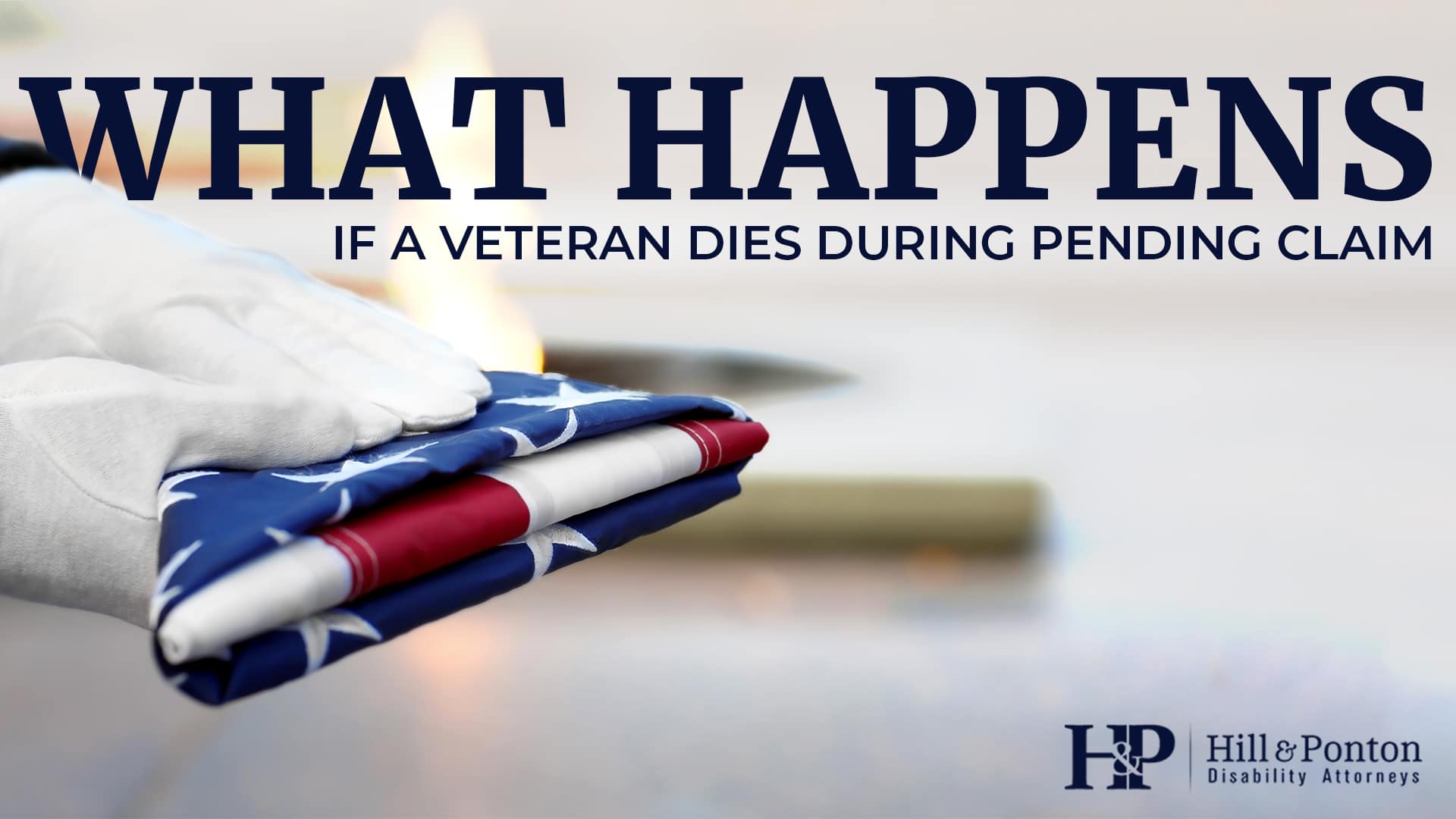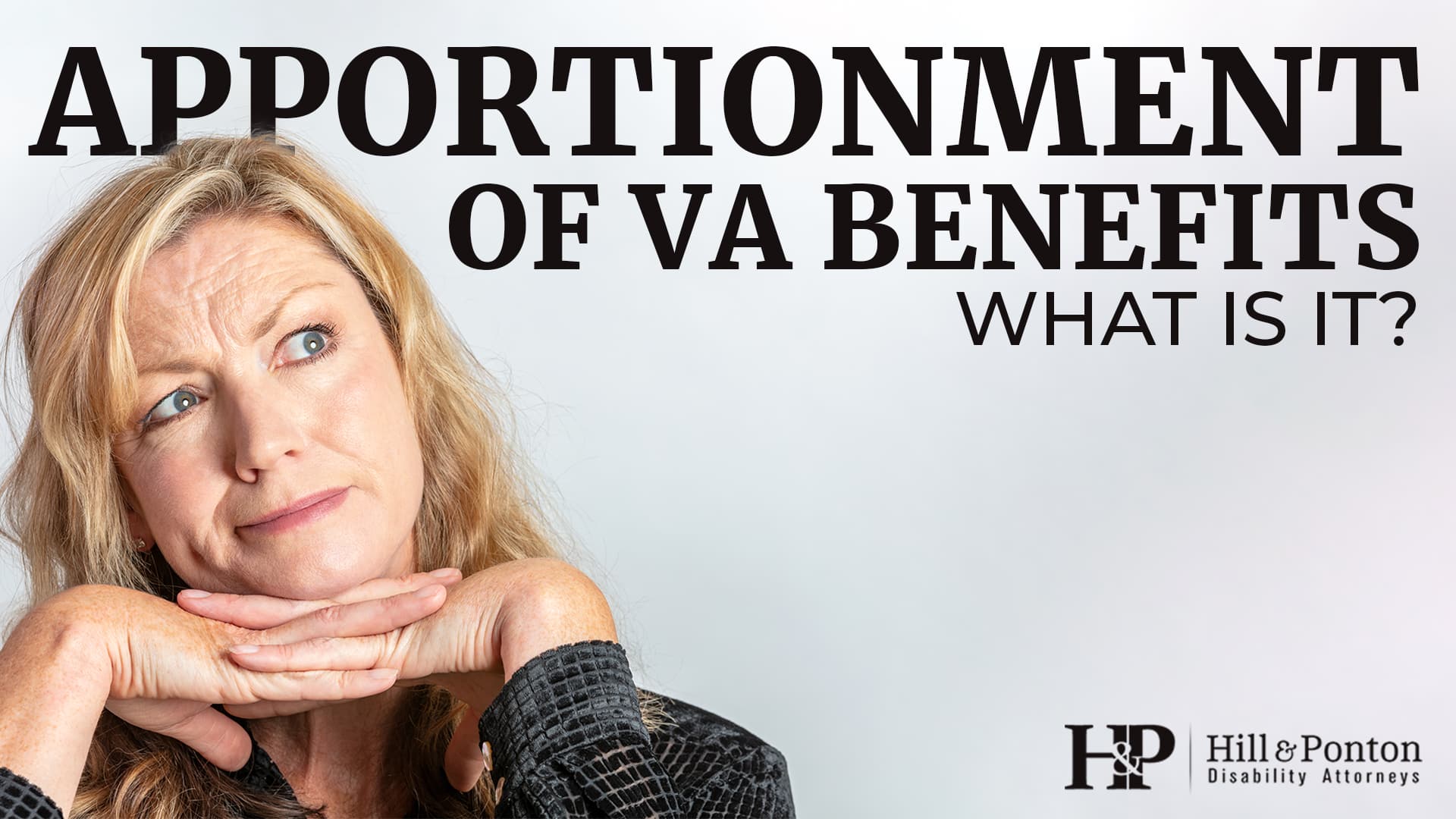What happens when veterans die before receiving what they’re owed? There are four main VA benefits that can be awarded to a veteran’s survivor: accrued benefits, Dependency and Indemnity Compensation (DIC), death and burial benefits, and death pension.
Accrued benefits are owed to the veteran prior to his death or become due because of a decision made on a pending claim, DIC is paid to a qualifying survivor for a veteran’s service-connected death, death and burial benefits cover the family’s expenses, and death pension is a needs-based program for low-income surviving spouses or children of wartime veterans.
What Are Accrued Benefits?
Accrued benefits are different from other types of death benefits in the sense that they are benefits that the veteran was entitled to before his or her death. Like disability compensation, accrued benefits depend on the veteran’s disability ratings or decisions (and the survivor will receive the entire amount that would have been paid had the veteran not died).
Accrued benefits are based on the veteran’s entitlement, not the survivor’s entitlement. Therefore, there must have been a claim for benefits that had not yet been decided at the time of the veteran’s death, or if the claim was decided, the appeal period for that claim must not have expired. Without it, accrued benefits are not possible.
Who Is Eligible for Accrued Benefits?
When a veteran passes away, accrued benefits are payable in full to their surviving spouse. If there is no surviving spouse, the veteran’s children may be eligible for the benefits, paid in equal share to each child. If there are no surviving children, the veteran’s surviving dependent parents may be entitled to the benefits, payable in equal shares.
Note that if the veteran has a surviving spouse, and the spouse fails to file for accrued benefits, the person next lowest on the list may not file for accrued benefits in his or her place. Only if there is no surviving spouse (or if the spouse is ineligible or legally barred from receiving VA benefits) may the veteran’s surviving children or dependent parents file.
VA Requirements for Getting Accrued Benefits
Accrued benefits are available only when there is an existing rating, decision, or claim for benefits pending at the time of death. A survivor is entitled to accrued benefits when they meet all the following requirements:
- The claimant is the surviving spouse, child, or dependent parent, OR a person who bore the expense of the veteran’s last sickness and burial
- A claim was pending at the time of the veteran’s death OR a favorable VA decision had been issued but unpaid
- The claim for accrued benefits is filed within one year of the veteran’s death
- The benefit must be shown to be due based on evidence in the file at the time of death or in VA’s constructive possession
When Is a Claim Considered Pending?
A claim is “pending” if at the time of the veteran’s death the VA had not issued a decision or if a decision had been issued but was still within the one-year appeal period, and had not yet become final.
Accrued Benefits vs Substitution
In certain circumstances, another method is available for a surviving spouse or family member (eligibility is determined under the same rules as for accrued benefits) to receive the benefits that were due to a veteran at the time of his or her death. This is a process known as substitution.
Filing for substitution means that the surviving spouse “steps into the shoes” of the veteran and the claim proceeds as normal (the substituted claimant must prove entitlement as the veteran would have). In most cases, substitution is an easier and quicker process than filing a separate claim for accrued benefits.
Also, if a surviving spouse or family member files for substitution, the limitation that the VA can only consider evidence that was in its position at the time of the veteran’s death does not apply. The surviving spouse or family member will be able to submit additional evidence and claim alternate theories of entitlement (but will not be able to add issues or expand upon the pending claim).
VA attorneys Stacey Clark and Shelly Mark explain what happens to a veteran’s benefits after death and the different paths available to survivors, including substitution:
Our legal team may be able to help you win your appeal or accrued benefits. Get a free evaluation today.
Free case evaluationHow Does Substitution Work?
- Allows the survivor to submit new evidence and participate in the ongoing development of the VA disability claim
- Substitution is not restricted to only the evidence in the file at the time of death
- Must be requested within one year of the veteran’s death
- Only certain eligible persons (spouse, child, or dependent parent) may request substitution
- Applies only if the claim was still pending before VA at the time of death, including before the Board of Veterans’ Appeals, or in some cases before the Court
When Is Substitution Allowed?
Survivors of a veteran with a pending claim who died on or after October 10, 2008 are allowed to use substitution to continue the deceased veteran’s claim as if the veteran himself was still pursuing the benefits.
However, if the veteran passed away prior to October 10, 2008, and had not yet established service connection for their disability, the claim dies with them. Thus, the survivor will not be able to step into the claimant’s shoes through substitution and must file for accrued benefits.
Filing for Accrued Benefits
When any qualifying member files a claim for DIC or death benefits within one year of death, the VA is required to also consider if the individual is entitled to accrued benefits.
This means that filing VA Form 21-534EZ “Application for DIC, Death Pension and/or Accrued Benefits” for DIC or pension within one year of the veteran’s death will automatically be treated as a claim for accrued benefits too, unless the claimant expressly opts out. This application is also treated as a request for substitution.



